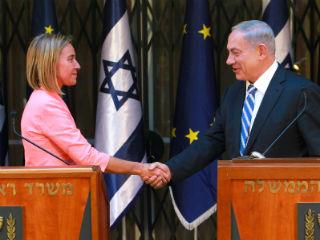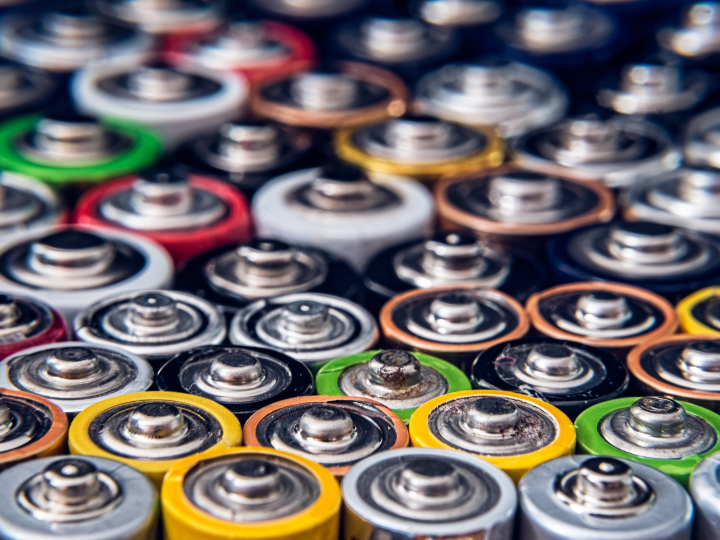Opportunities amidst Crisis in EU-Israel Ties
The EU and Israel have known better years of more extensive relations and stronger hopes for closer ties. Sadly, the current era is not one of growth and warming of relations

The EU and Israel have indeed cultivated valuable and flourishing cooperation in several areas, which ought to be nourished and concretized by leadership in the near future, lest it dissipate into nearly nothing. It almost goes without saying that, as Israel is one of the world leaders in the field of security, intelligence and cyber, the EU should make the most of the partnership with its Middle-East ally as a resource as it confronts and responds to emerging threats within its borders.
by
Raanan Eliaz* and
Dimitri Dombret**
However, this rather gloomy state of affairs, described by two ardent advocates for closer, strategic ties between the EU and Israel, is not set in stone.
There are certain areas where progress can be accomplished despite the current atmosphere, with an EU that is self-consumed by unprecedented internal crisis and the struggling Israeli leadership, which, by and large does not view Europe as a viable partner.
The EU and Israel have indeed cultivated valuable and flourishing cooperation in several areas, which ought to be nourished and concretized by leadership in the near future, lest it dissipate into nearly nothing.
It almost goes without saying that, as Israel is one of the world leaders in the field of security, intelligence and cyber, the EU should make the most of the partnership with its Middle-East ally as a resource as it confronts and responds to emerging threats within its borders.
Additionally, having built a solid basis as the start-up nation, Israel is an invaluable partner to the EU in the development of ground-breaking technologies – a trend confirmed by the rising trade exchanges among the Israeli and EU markets.
In January, Israel Minister of Economy, Eli Cohen disclosed figures showing that Israel’s exports topped $100 billion for the first time on the back of surging trade with Europe, and that Israeli exports to the EU market had already broken the $100 billion mark in 2017, though projected only for 2020.
After two successive years of decline, thanks to the improved economic climate in the European bloc, exports to the European Union increased by 20%, to $16 billion to account for some 35% of all Israeli goods exports. The largest increase in exports to Europe, was to the United Kingdom and France, each registering an increase of around 35%.
Moreover, in its 2017 annual SRM report “Economic relations between Italy and the Mediterranean,” released by Italian Bank Intesa San Paolo in Cooperation with the Centre for Economic Studies, Israel is considered a strategic market in the Mediterranean area for Foreign Direct Investments (FDIs) in the fields of agritech, maritime transportation, research, innovation and logistics.
Moreover, one of Europe’s critical challenges, i.e., the arrival of immigrants and their integration into the member states' economy and civil society, can be dramatically eased by sharing experience with Israel. In about one decade, the country successfully integrated over one million immigrants from the former Soviet Union republics and a smaller number of Ethiopian immigrants. In the process of integration, Israel overcame huge challenges, gathered useful experience and grew stronger. Today it can assist the EU in encouraging social cohesion and articulating a narrative to increase solidarity.
Last, but not least, comes the role the EU might play in preparing for Israel-Palestine negotiations. Since the current intrastate and interstate of affairs does not bode well for renewed negotiations, the EU holds a unique position for assisting in the margins and in preparing the ground for a brighter future. Sooner or later, both Israel and Palestine will have leadership that is capable of making peace.
The Palestinians do not perceive the current US administration as a viable moderator. The EU can perpetuate therefore an aura of peaceful resolution to the long years of Israeli-Palestinian conflict by far more decisively endorsing the rapprochement of the two people’s civil societies.
To this end, the EU should increase its presence in the field of Israel-Palestine education and innovation in education. As Nelson Mandela once said, “Education is the most powerful weapon which you can use to change the world.” The EU is well positioned to provide expertise, experience and support in enhancing and improving existing initiatives which bring Israelis and Palestinians closer.
As founder of the Forum of Strategic Dialogue, one author of this article has viewed first-hand how non-governmental initiatives and out-of-the-box strategic dialogues can assist and generate the creation of pragmatic solutions, to advance common interests and shared values.
Hence, new generations of Israeli and Palestinian citizens can ultimately forge new initiatives that could result from joint educational programs and enhanced integration of Israeli and Palestinian schoolchildren and students.
Such programs can have many faces, some within existing frameworks offered by Erasmus and Erasmus Mundus, and others in original and privately funded programs. EU expertise can help Israelis and Palestinians define a narrative deprived of hate speech, one that would be included in textbooks and generate a new and more informed generation of Israelis and Palestinians.
Through EU funding opportunities such as the European Neighbourhood Instrument (ENI) and the EU Peacebuilding Initiative (formerly EU Partnership for Peace Programme), the EU can support and promote Israeli and Palestinian organizations that fight on an everyday basis to improve lives of citizens.
If the EU succeeds in steering a fruitful collaboration between the counterparts, it may be able to contribute to a better outcome for the next generation and to peaceful future perspectives in the Middle East.
*Founder and former Director General of the European Leadership Network (ELNET) and the Forum of Strategic Dialogue (FSD), two organizations dedicated to strengthening EU-Israel ties.
**Former Executive Director of European Friends of Israel (from 2006 until 2009), a trans-European and politically independent organization which was active in Brussels and in EU Member States. He is an advocate for better EU-Israel relations and he currently runs a Public Affairs & Communication company based in Belgium.



 By: N. Peter Kramer
By: N. Peter Kramer
